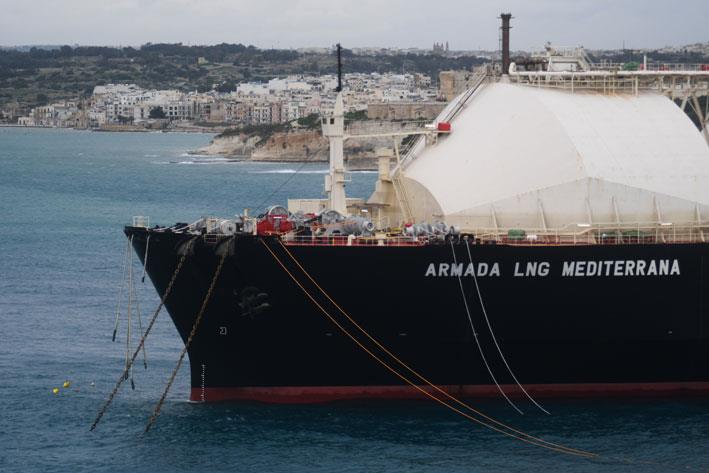The gas pipeline between Malta and Italy is planned to be up and running by 2024, Energy Minister Joe Mizzi said this morning.
Now in the 'milestone' phase of submissions of applications for permits in both Malta and Italy, when functioning, the €322 million pipeline will replace the temporary FSU gas tanker currently berthed in Delimara linking to the Terminal Station in Gela, Italy.
Speaking at a news conference this morning, Mizzi told the press that an application for development has been submitted to the Italian Economic Development Ministry as well as Malta's Planning Authority.
Calling the project the 'next critical step in the National Energy Policy', CEO of Energy and Water Agency Daniel Azzopardi said that the project is a European Commission 'Project of Common Interest' (PCI). He explained that PCI projects will benefit from a set of 'perks', including accelerated permitting procedures and elgibility for financial support. The planning process will take about three and a half years.
Within that time, government will commission environmental impact studies and a marine surveys of the offshore route, which will cost €8 million and should be finished by 2019. Azzopardi added that a public company would be set up in the process in order to manage and operate the project. The permits to be handed in by 2020 will be then followed by completing the project which should take between 24 and 36 months.

The 159km-long pipeline will be laid on the seabed at a maximum depth of 159m and will be capable of delivering 2 billion cubic metres (BCM) of natural gas per year for fuelling the power plants in Delimara and other future emerging markets.
Azzopardi explained how the European Union is trying to end the energy isolation of member states. He said that Italy is "blessed with interconnectors," and the link with Gela will be Malta's gas network grid link with the rest of Europe.
Last month the basic design and route study were completed. The environmental studies will begin mid-2018, following a public call for tenders which will be completed in 2019, the marine survey of the offshore route will also be conducted in 2018. This will be followed by the front-end engineering design study which is required for the preperation of a tender for the construction and laying of the pipeline. The Government is in the process of applying for EU funding for the aforementioned studies, which are estimated to cost 8 million Euro.